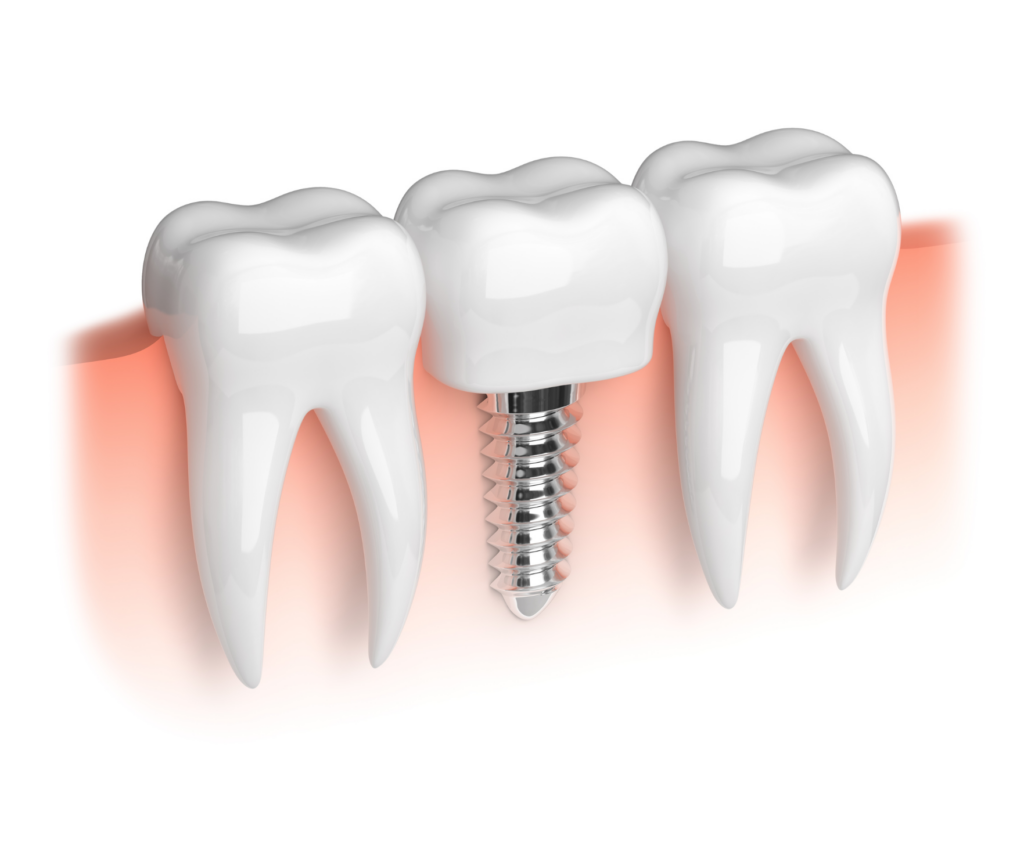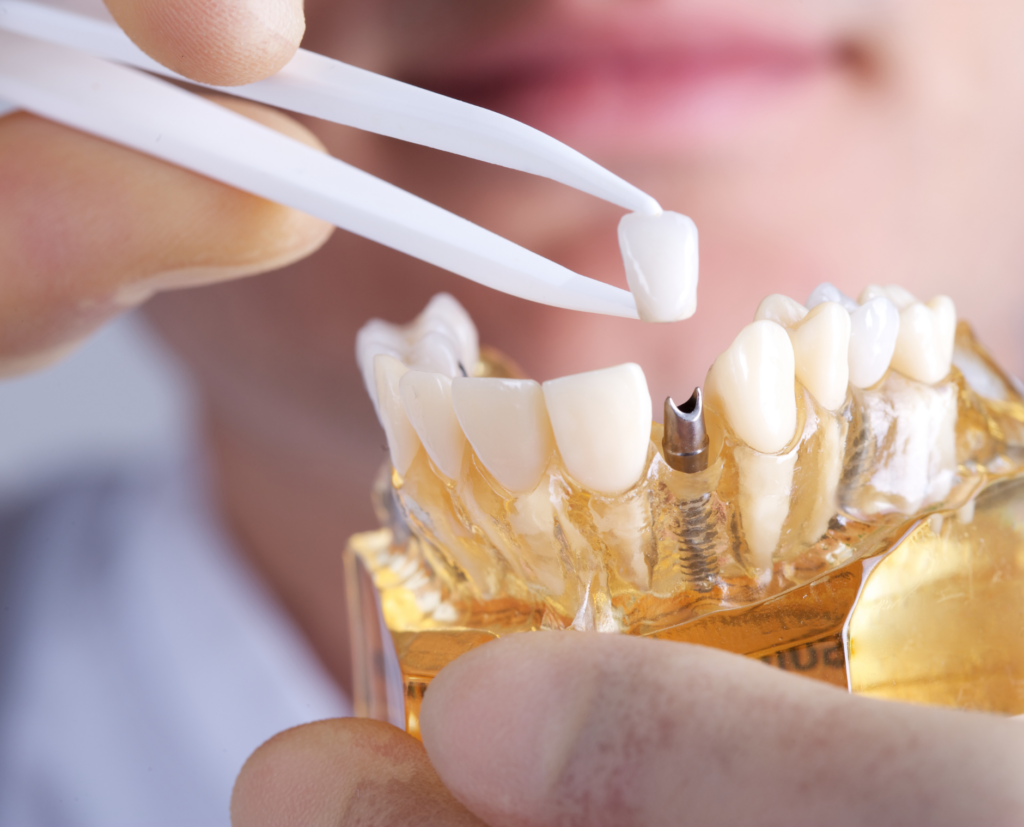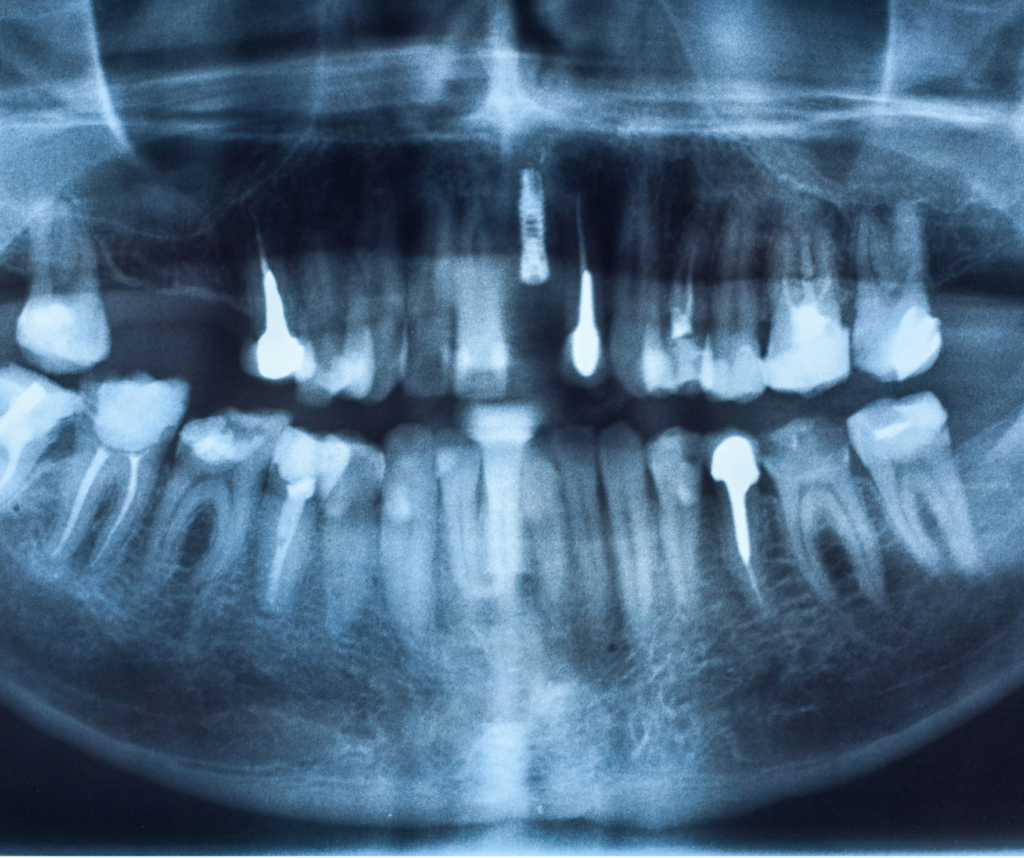Dental Implants
Dental Implants have been used successfully for many years. The implant itself is a post that is surgically placed in the jaw. A prosthesis (artificial tooth or teeth) is then attached to the post.

what is a dental implant?
Dental implants are a common solution to tooth loss or damage, offering an artificial yet stable method of restoring one’s mouth to its original state. Implants consist of a titanium post inserted into the jawbone and acts as an artificial tooth root. An abutment is then attached to the implant providing support for the dental crown or bridge placed atop it. This mimics how our natural teeth roots grip onto gum tissue, ensuring strength and stability while blending in with the real teeth. This method reduces the risk of slippage experienced with dentures, resulting in improved chewing and speaking capability. Furthermore, this type of treatment can be said to preserve facial structure better than other alternatives – such as bridgework – since it does not require modifying adjacent teeth. In addition, dental implants retain the bone level of the surrounding tissue.

what is a dental implant?
Dental implants are a common solution to tooth loss or damage, offering an artificial yet stable method of restoring one’s mouth to its original state. Implants consist of a titanium post inserted into the jawbone and acts as an artificial tooth root. An abutment is then attached to the implant providing support for the dental crown or bridge placed atop it. This mimics how our natural teeth roots grip onto gum tissue, ensuring strength and stability while blending in with the real teeth. This method reduces the risk of slippage experienced with dentures, resulting in improved chewing and speaking capability. Furthermore, this type of treatment can be said to preserve facial structure better than other alternatives – such as bridgework – since it does not require modifying adjacent teeth. In addition, dental implants retain the bone level of the surrounding tissue.
What Are the Benefits of Dental Implants?
With the exception of your natural teeth, nothing looks more natural than an implant. One important benefit of implants is that they slow the shrinking of bone and gum tissue from the area of the missing tooth, thus preventing premature aging.
- Of Americans between the ages of 18 and 64, approximately 49% are missing at least one tooth.
- Dental implants are the most advanced tooth replacement system ever devised.
- More than nine out of ten implants last longer than 15 years.
- Dental implants never develop decay.
- Dental implants never require root canals.
- Dental implants preserve the jawbone, which can prevent premature aging.

What Are the Benefits of Dental Implants?
With the exception of your natural teeth, nothing looks more natural than an implant. One important benefit of implants is that they slow the shrinking of bone and gum tissue from the area of the missing tooth, thus preventing premature aging.
- Of Americans between the ages of 18 and 64, approximately 49% are missing at least one tooth.
- Dental implants are the most advanced tooth replacement system ever devised.
- More than nine out of ten implants last longer than 15 years.
- Dental implants never develop decay.
- Dental implants never require root canals.
- Dental implants preserve the jawbone, which can prevent premature aging.

What are Dental Implants Used For?
There are two basic uses for Dental Implants:
- As an artificial root for a single tooth replacement.
- As anchors for a fixed or removable prosthesis to replace multiple teeth.

What are Dental Implants Used For?
There are two basic uses for Dental Implants:
- As an artificial root for a single tooth replacement.
- As anchors for a fixed or removable prosthesis to replace multiple teeth.

